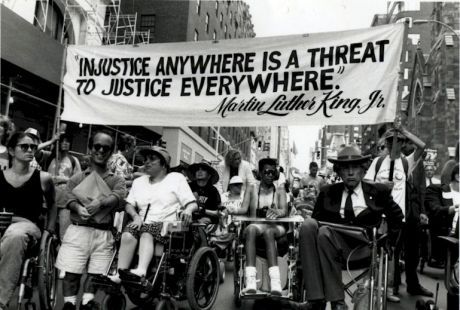Features
You are here
Poverty and violence should not be synonyms for "disability"

November 26, 2012
Under the theme: “Removing barriers to create an inclusive and accessible society for all”, this December 3, 2012, the world is poised to celebrate for the 20th time the International Day of Persons with Disabilities. But, can we really celebrate when there is no action behind the words? No funds budgeted for structural improvements in the system?
Creating an inclusive and accessible society for all seems a secondary goal when everyday poverty and violence snatch more lives and souls out of persons with disabilities. We need to remove barriers now! Barriers to employment, education, to policies that keep many disabled persons systemically oppressed and with no way out of their double trap: poverty and disability.
Even the World Bank declared that “The linkage between poverty and disability is strong and goes in both directions. Poverty causes disability through malnutrition, poor healthcare and dangerous living conditions. Disability can cause poverty by preventing the full participation of disabled people in the economic and social life of their communities, especially if the proper supports and accommodations are not available.”
This is true in Canada, in Ontario, and if you look closely, it is patent right here in Toronto. The vicious circle of poverty leading to disability and disability leading to poverty needs to stop. We have the resources to implement better supports for care and accommodation; we are missing the political will to make those programs available.
The Council of Canadians with Disabilities states that the overall poverty rate for Canadian adults was 10.5 per cent in 2006, and for people with disabilities the rate was 14.4 per cent. Moreover, the lack of an affordable housing program put many at risk. The CCD links poverty to living arrangements: “For instance, amongst people who live alone, 31 per cent with disabilities live in poverty compared with 21.3 per cent of their counterparts without disabilities.”
The challenges of living with a disability are not limited to the attitudinal discrimination that denies many access to employment, it puts disabled people at a higher risk of suffering violence.
A report published in July 2012 by the Lancet, states that “children and adults with disabilities are at much higher risk of violence than their non-disabled peers” and children with mental or intellectual impairments appear are “ most vulnerable, with 4.6 times the risk of sexual violence than their non-disabled peers”, these details appear on a WHO webpage.
Canada has signed the UN Convention on the Rights of Persons with Disabilities and Ontario enacted the AODA 7 years ago. When are we going to have something to show for it?
This should be a time for celebration, and we will celebrate all the achievements of the Disability Rights Movement--of grass-roots groups who forge ahead despite of the challenges. We must include the cause of disabled persons in every thing we do, everywhere we go.
Section:
- Log in to post comments










